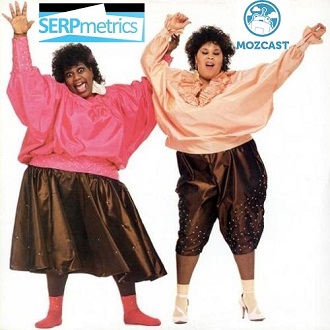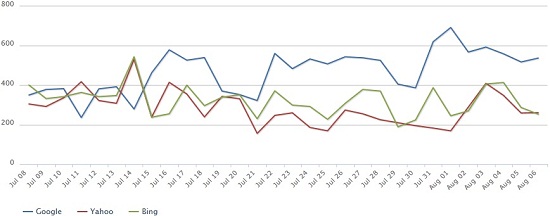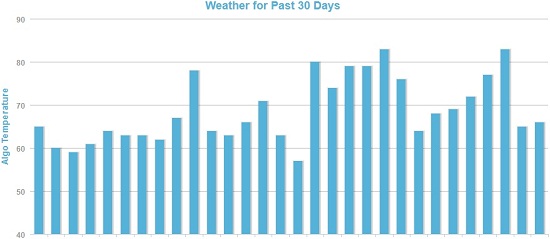 If you are professionally involved in some way with the web and you run a blog or two, you’re probably very sensitive about search engines. The reason is basic- Those plain modestly designed typing boxes are probably responsible for at least half of the traffic to your site (okay, mostly Google).
If you are professionally involved in some way with the web and you run a blog or two, you’re probably very sensitive about search engines. The reason is basic- Those plain modestly designed typing boxes are probably responsible for at least half of the traffic to your site (okay, mostly Google).
Therefore, whenever there’s some major algorithm update, the impact on your website could turn out to be momentous, whether you are on the side that ecstatically rejoice (“Google is so the best search engine ever”) or on the side that melodramatically mope (“Google is so the most fucked up search engine ever”).
But how can you tell when the Google lords or even the Bing aristocrats have made a serious wonderful/loathsome algorithmic change?
Sure, you can visit uber-awesome blogs like mine (I rock) which regularly keeps track and update about the recent search kingdom fluctuations, but you also want more rapid and frequent data (besides, you don’t want to be dependent on self-centered bloggers who think they rock).
Fortunately for you, there are actually couple of quite a useful free services that can offer the data you pry for. The first is SERPmetrics which provides fluctuation charts of Google, Bing and Yahoo and being updated on a daily-basis (if you are a paying customer you can receive updates on an hourly-basis).

To produce these geeky beautiful charts, the folks at SERPmetrics are examining 100,000 keywords (!) which can paint a very accurate picture of the recent search engines’ vacillation. They also have a Twitter account where they post if some meaningful events occurred. Great service, highly useful and satisfying the most nerdish needs.
The second service is MozCast. It just recently launched by the acclaimed SEO company SEOmoz and provides a daily glimpse on Google’s relative search results movements (screw you Bing and Yahoo, you’re not that important). The changes appears as a weather report, in which the higher the temperature is, the more volatile the rankings are.

Even though MozCast’s keyword sampling (1,000 per day) is much smaller than SERPmetrics’, it still offers a fantastic indication about how blazing Google results are. MozCast also fancy themselves with a Twitter account where they sometimes recommend if you should grab a coat or a cape if that’s your thing (but that’s just weird and doesn’t even make sense).
Unsurprisingly, SERPmetrics’ and MozCast’s data are pretty correlated so the two of them together plus visiting some nifty blog can offer you a great orgy of dorky search information.